YouTube, the world’s largest video-sharing platform, attracts many users. However, YouTube may be blocked in some regions/countries, and users can’t access and use YouTube normally. This is where YouTube proxy can come in handy, helping you avoid being blocked. In this article, we will delve into the definition, benefits, and use cases of YouTube proxy.
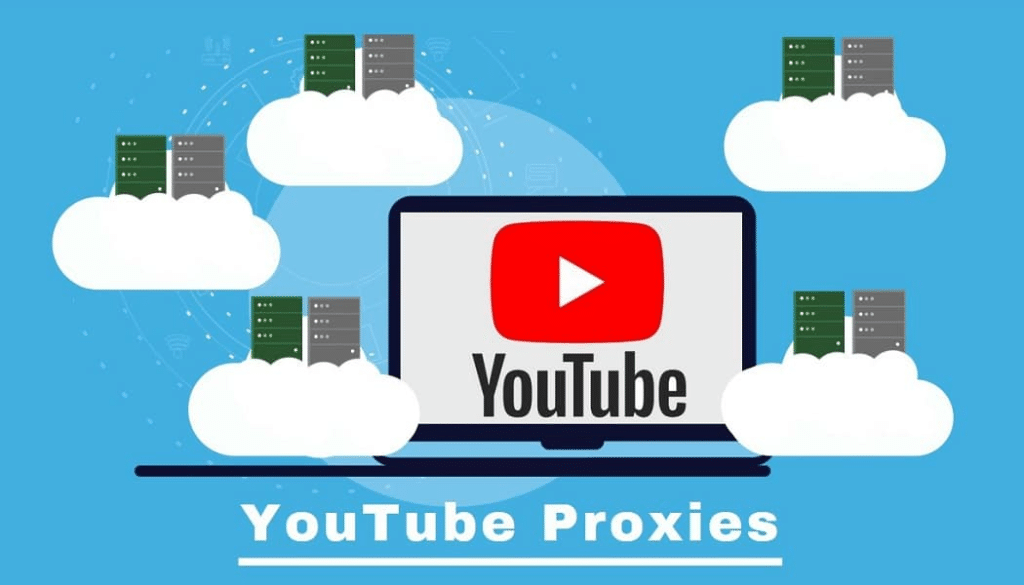
What is a YouTube proxy?
YouTube proxy can act as an intermediary between your device and YouTube server. Since YouTube is blocked in some countries or regions, users can’t access YouTube directly in their network environment. YouTube proxy hides your real IP address, so you can bypass geo-restrictions or network blocking and access the YouTube website in a specific region or network environment.
Benefits of YouTube Proxy
1. Breakthrough geographic restrictions
YouTube restricts video access according to a user’s geographic location, and users in many areas are unable to access the YouTube video website directly. Using YouTube proxy can break through geographic restrictions, unblock the YouTube website, and help you browse YouTube without any restrictions.
2. Protect privacy and security
To stay hidden on YouTube, you need to use a high-quality YouTube proxy. YouTube proxy can route your internet traffic through a proxy server, thus hiding your real IP and geographic location, effectively protecting your privacy and security. With YouTube proxy, you can browse websites anonymously.
3. Improve network performance
When uploading or watching YouTube videos, you may face network fluctuation problems, which can easily lead to video upload failure or poor playback. YouTube proxy can optimize network performance by saving network bandwidth and ensuring the stability of the network connection. Using YouTube Proxy can help you watch YouTube videos more smoothly and improve your experience.

Use cases for YouTube proxy
1. Capture YouTube data
YouTube marketers or researchers sometimes need to crawl YouTube data for analysis, such as collecting comments for sentiment analysis, tracking YouTube video rankings, etc. However, a YouTube proxy is indispensable in the process of crawling data, and the process of crawling data is inseparable from a YouTube proxy. YouTube proxy can avoid blocking and IP bans, by setting different IP addresses for the crawling tool, it can effectively improve the crawling efficiency.
2. Create Multiple Accounts
Using YouTube proxy can also help you create multiple YouTube accounts. In order to expand the influence of the account, marketers will open matrix accounts. However there are limited YouTube accounts created under the same IP address. Using YouTube proxy can provide a large number of IP addresses, with a special browser you can manage multiple YouTube accounts.
3. Attract subscribers
YouTube Proxy allows you to set up different proxies for your accounts so that each account can target different groups with personalized video content. This allows our videos to be viewed and shared by more people, which can effectively increase video plays and attract more subscribers. In addition, by using proxy IPs from different countries/regions, you can publish multiple videos and attract more subscribers to watch them.

Conclusion
In conclusion, utilizing YouTube proxy can help us break through geographic limitations, protect privacy and security, and improve network ability. YouTube proxy has a variety of uses, including crawling data, creating multiple accounts, and attracting subscribers. When using YouTube proxy, you should choose the right type of proxy, different types of proxy can meet different needs of use, and of course, you should pay attention to the rational use.
In today’s digital age, proxy servers are becoming increasingly important for a variety of reasons. Whether you want to protect privacy, enhance security, access geo-restricted content or optimize your Internet connection, a proxy is a very useful tool. So what is a proxy IP and where can I get a proxy?
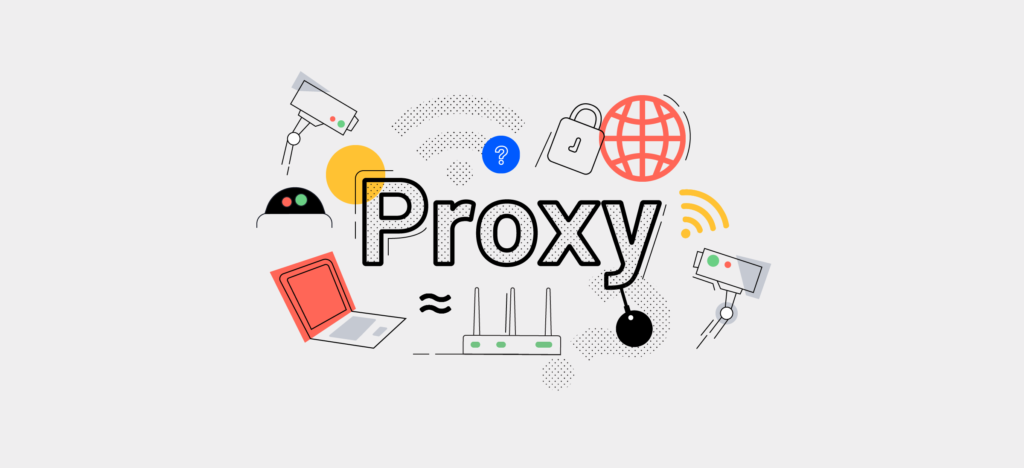
A proxy IP can act as a gateway between your device and the Internet. Internet traffic will pass through the proxy server when it reaches the website you want to visit, then the request will be routed through the same proxy server, and then the proxy will forward the data it gets from the website to you. Depending on your usage and needs, Proxy IP can provide different levels of functionality, security, and privacy.
What are the benefits of using a proxy server?
There are several advantages to using a proxy server, including:
Privacy: Proxy servers mask your IP address, making it difficult for websites and online services to track your activity. Using a proxy server protects your privacy when you visit websites and services.
Enhanced Security: Proxy servers act as a barrier between your device and potentially harmful websites or malicious entities, adding an extra layer of security. Your requests pass through the proxy server before being forwarded to the target website, providing effective security from malicious websites.
Access to geo-restricted content: Using a proxy server, you can bypass geo-restrictions and access content that may not be available in your area.
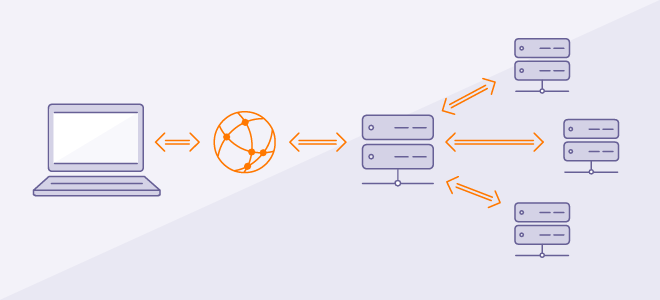
Where can I get a proxy?
Now you understand what a proxy IP is and the benefits of using a proxy. So where can I get a proxy? Don’t worry, here are some ways you can get a proxy IP:
1. Free proxy websites. There are usually many websites on the Internet that offer free proxy IP, and you can find them by searching for free proxies through various search engines. You can use these free proxy IP, but its security and stability is difficult to guarantee, try not to carry out operations that require high privacy and security, or you will face the risk of information leakage.
2. Proxy IP service providers. If you want to get a high-quality proxy IP, the proxy IP service provider is a good choice. These service providers can provide professional proxy IP services. You can choose a suitable proxy IP service provider according to your needs and then purchase their proxy services. After purchasing the service, the service provider will provide the proxy IP address and port information, and you can configure the proxy IP according to this information.
3. VPN Proxy Service Providers. VPN service providers are also a way to get proxy. VPN servers include the function of assigning proxy IP addresses, and users can use the proxy IP addresses in them in this way. It is important to note that when choosing a VPN service provider make sure they have a good reputation and word of mouth. Users can choose the right service provider according to their actual needs, and the proxy services provided by different service providers are somewhat different.
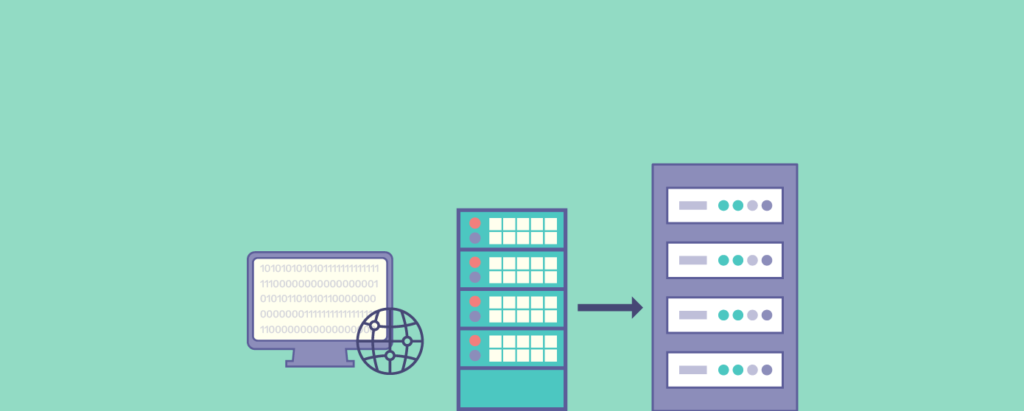
Conclusion
In response to the question of “Where can I get a proxy”, you can get advice from the above and choose the right way according to your actual needs. No matter which way you choose, you need to pay attention to the quality and safety of the proxy and choose a regular and reliable proxy service provider in order to have better and safer browsing.
Proxy IP and VPN are two common networking technologies that we use to hide a user’s real IP address. So what’s the difference between Proxy IP and VPN? In this article, we will introduce the definitions of Proxy IP and VPN and delve into the main differences between the two to help you make a better choice.
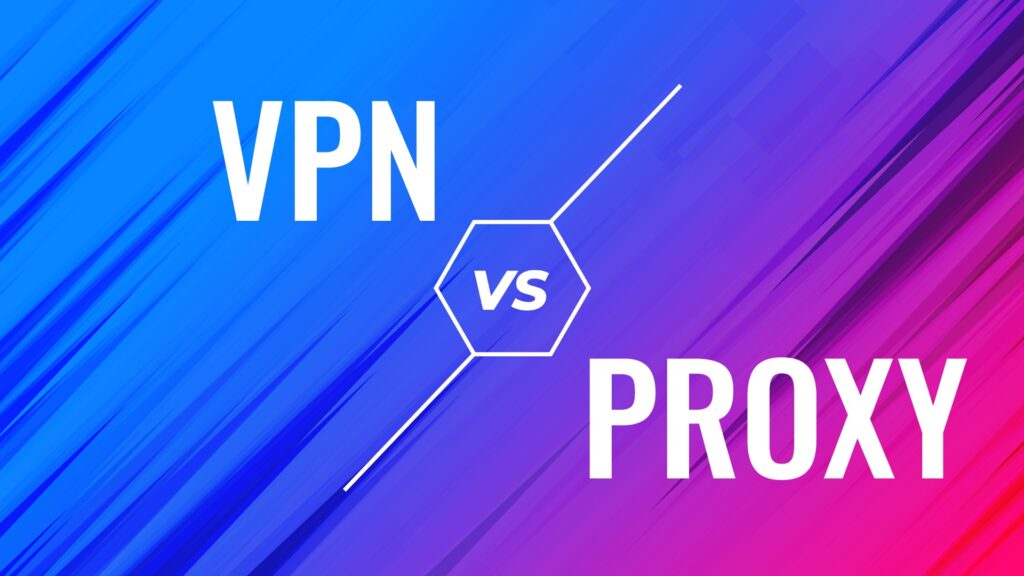
Definition of Proxy IP and VPN
Proxy IP can often act as an intermediate server between your device and the target website. When you use a proxy IP, your traffic is forwarded through the intermediate server so that the target website will see the IP address of the proxy server and will not display your IP address. This protects privacy and security from being tracked by the target website.
VPN is a virtual private server that replaces your IP address with the IP address of the VPN service provider when you access a website while using a VPN. VPN redirects your Internet speed data through an encrypted tunnel that encrypts all your Internet activity and device IP addresses, thus keeping your privacy secure.
Differences Between Proxy IP and VPN
Proxy IP has a wider coverage
Proxy service providers usually have large proxy IP pools, which can contain millions of IP addresses from different countries and regions. A wide range of proxy IP addresses allows you to select a proxy IP address for a specific country to access localized content. In contrast, VPN generally doesn’t have as wide coverage, with fewer country lines for users to choose from.
Proxy IP prices are more flexible
There are more types of proxy IP, and most proxy types are about the same price as VPN. However, residential proxies use residential IP addresses, which are more anonymous and therefore will be more expensive. Proxy IP pricing is more flexible and there are multiple plans available (free trials, custom plans, etc.).
Proxy IP is faster
VPNs offer encryption, making it one of the security tools of choice, but because it requires encryption of your sensitive data, connection speeds are relatively slow. Proxy IP is faster and can significantly reduce load times and improve the overall browsing experience by caching frequently visited websites and resources.
Proxy IP can be configured in more ways
VPN is usually a one-click tool with dedicated apps and extensions that are relatively simple to set up. Proxy IP, on the other hand, is more complex and varied to configure than VPNs. You can configure Proxy IP on Windows, Mac, mobile devices and browsers, which provides a more comprehensive and flexible way of configuring Proxy IP to meet the different needs of users.
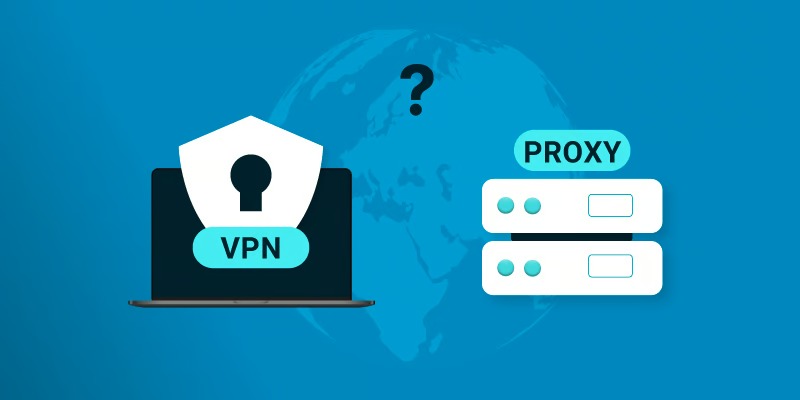
Similarities between Proxy IP and VPN
1. Hidden IP address: Proxy IP and VPN can hide your real IP address, allowing you to browse websites anonymously.
2. Access to content: Proxy IP and VPN are both effective in helping users access local and regional content, and through rerouting, also help to access a wider range of content on streaming platforms.
3. Bypass geo-restrictions: Some websites restrict accessible content by geographic location, proxy IP and VPs can both help you access websites and platforms without restrictions.
Can I use a proxy IP and a VPN at the same time?
While it is possible to use both at the same time, it is not recommended. It is recommended to use a proxy IP alone, as this will speed up your internet connection. If you need to perform specific network operations, it will be easier to use a proxy IP to access individual websites or applications than to download a VPN.
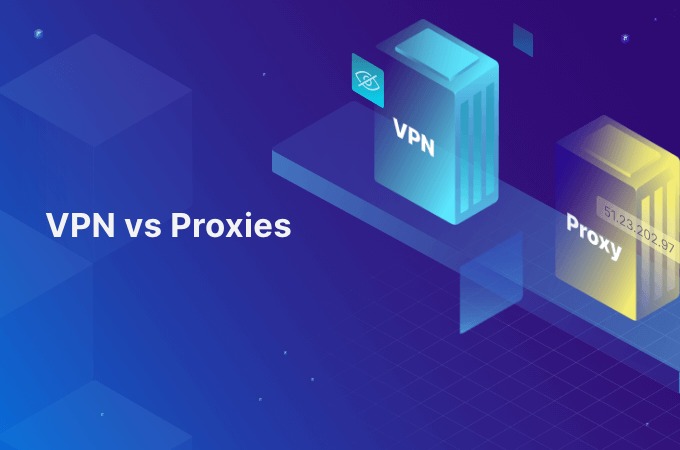
Conclusion
Proxy IP has a wider coverage, more flexible pricing, faster speeds, and more configuration options than VPN. Choosing between a proxy IP and a VPN still largely depends on the specific situation and purpose of use. Of course, whether you choose a proxy IP or a VPN, you should get it through a safe and reliable channel to ensure security.
Proxy servers are a common networking technology used in modern times to help people protect privacy or improve network performance. Many people will wonder: Can I use a proxy on Android? In this article, we will explore the feasibility and legality of using proxies on Android.

What is a proxy server?
A proxy server is an intermediary between your device and the target website. When you use a proxy server, your information will not be shown directly to the target website, the proxy will hide your identity information. Your request will be sent to the target website through the proxy server, and then the proxy server will return the acquired data back to you.
Can I use a proxy on Android?
Of course, proxy servers can be configured not only on computer devices but also on Android devices. After using a proxy on Android, your device’s IP address will be switched to a proxy IP address. When you use apps or browsers on Android, your traffic goes through the proxy server, which protects your privacy and security.

Is it legal to use proxy on Android?
The use of proxy on Android devices is generally legal as long as the proxy is used for a legitimate purpose. Some common legitimate purposes for using proxy include increasing Internet speed, protecting online privacy, and accessing websites or online services that are blocked in certain countries.
However, it is important to note that the use of proxy may be limited by the terms of service of certain websites or online services. You should follow the rules of different countries when using proxy on Android and use proxies correctly for internet operations.
Is it possible to use free proxies on Android?
Using free proxies on Android is not safe. While you can get free proxies over the Internet, using free proxies on your Android phone is prone to security or privacy risks. One potential risk of using free Android proxies is that the proxy server may not be properly protected, which could leave your Android device open to attack and lead to the disclosure of personal information.
Another risk of using free proxies on Android is that the provider may collect your data (such as your IP address and browsing history) and sell it to third parties. This can compromise your privacy and may leave you bombarded with spam such as adverts.

Anyway, you can use proxies on Android, it’s legal. It is recommended to use paid proxies on Android, which are more secure. This is because the proxy service provider will protect the customer’s information, and paid proxies have features such as encryption protocols, which provide more security for customers. However, you must consider various factors, including the purpose of use, type of proxy, price and so on, to choose the most suitable proxy provider.
Proxy servers are usually located between your computer and your ISP, and if you want to enable a proxy server for all processes and services on your host computer, you can use a system proxy. However some people do not know where to find the system proxy settings. System proxy settings can be found in different operating systems, but only if the proxy server is enabled. In this article I will show you how to find the proxy settings in different systems.
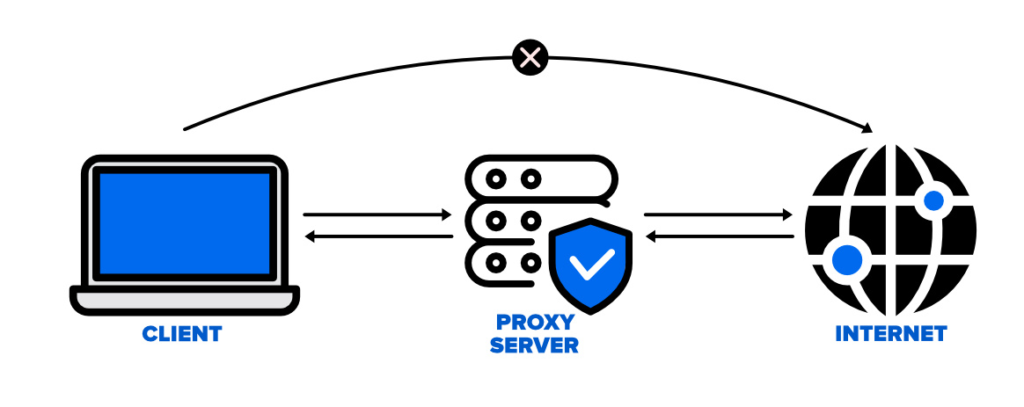
Find the system proxy settings in Windows
There are usually two ways to find system proxy settings in Windows:
Using the Control Panel (for all Windows versions)
1. Open the Control Panel. You can search for Control Pane ln the Start menu and open it.
2. In the Control Panel window, click Network and Internet.
3. Select Internet Options.
4. In Internet Options, click on the Connections option and click LAN Settings.
5. In the LAN Settings window, you can see the proxy server settings. There are two types of configuration: Automatic configuration or Proxy Server configuration.
6. Get system proxy information. If “Use Auto Configuration Script” is checked, it means you have already configured the PAC proxy in your system. You can obtain the path to PAC file from the “Script Address” section. If “Use a proxy server for your LAN” is checked, you can obtain Proxy Host and Port from the “Address” and “Port” section.

Using Settings (Windows 10 only)
1. Click Start and then click Settings in the bottom left corner. You can open the Windows settings page by pressing ‘Win + I’.
2. In the Settings menu, click Network and Internet.
3. Find Proxy in the left menu.
4. In the Proxy window, you can see all the relevant settings for setting up a proxy in Windows. It is divided into two configurations: Automatic or Manual proxy setup.
5. Get the system proxy information. If “Use setup script” is enabled, it means that you have configured PAC proxy on your system. You can obtain the path to PAC file from the “Script Address” section. If “Manual proxy setup” is enabled, you can simply obtain Proxy Host and Port from the “Address” and “Port” section.
Find thesystem proxy settings in macOS
1. Open System Preferences.
2. Click on the Network option.
3. Select your active network connection, usually Wi-Fi or Ethernet, and then click Advanced.
4. Click on the Proxy tab and you can view the proxy settings, where you can configure multiple proxy protocols.
5. Get the system proxy information. If “Automatic Proxy Configuration” is checked, it means that you have configured PAC proxy in your system. You can obtain the path to PAC file from the “Script Address” section. If “Web Proxy (HTTP)” or “Secure Web Proxy (HTTPS)” is checked, you can simply obtain Proxy Host, Port, Username, and Password.

Find system proxy settings in Linux
In Linux, finding the system agent settings will depend on the distribution you are running. Generally speaking, the procedure is similar for all distributions, so let’s use Ubuntu as an example.
1. On Ubuntu, open Settings and scroll down to the Hardware section.
2. Click on Network.
3. Click Network Proxy, then you can choose Manual or Automatic to view and configure your proxy.
5. Get the system proxy information. If the “Automatic” option is selected, it means that you have configured PAC proxy in your system. You can obtain the path to PAC file from the “Configuration URL” section. If the “Manual” option is selected, you can simply obtain Proxy Host and Port from the appropriate section.

These are the simple steps to find the system proxy, and they will vary depending on your computer system, but the basic process is similar. By learning how to find the system proxy settings, you can better configure and use the proxy.
An IP address is a string of numbers that uniquely identifies your computer online. The address distinguishes you from other computers or websites, and other websites can track your online activity, location, and personal information through your IP address. A proxy server is a Web site tool that hides your IP address, thus keeping your privacy safe. But does a proxy protect your IP? Is it reliable? This article will answer these questions and briefly analyze the limitations of proxy servers and how to enhance their security.

Can a proxy server protect your IP?
A proxy server can act as an intermediary between your device and the Internet and works by re-routing your Internet traffic through an intermediate server. When you connect to a proxy server, all of your traffic is routed through that server before it reaches the target website.
During this process, your IP address is hidden and the websites you visit will see the IP address of the proxy server. This means that the target website cannot track your real IP address, which provides a degree of anonymity to the user. However, a proxy server can hide your online identity, but it does not allow you to be completely anonymous.
Limitations of Proxy Servers
Proxy servers can’t fully protect your IP, they have certain limitations. Understanding these limitations can help us pick and use proxy servers better.
1. Browser fingerprinting: Proxy servers can hide users’ IP address information, but they cannot prevent browser fingerprinting. Different users use different browser versions, operating systems, screen resolutions and browsing habits, the combination of these information will create a unique fingerprint, which can be used by websites to identify your true identity.
2. Third-party monitoring: Most proxy servers do not encrypt your Internet traffic or data, which means that third parties can monitor or intercept your Internet traffic. Even if you use a proxy to hide your IP address, your Internet Service Provider (ISP) will still easily know who you are.
3. Proxy Service Provider: The quality of the proxy server is also a point to consider. Free proxy servers are of poor quality and low security, making it difficult to protect your IP address. It is recommended to use the proxy IP service of a quality proxy service provider, who provides a proxy server with high stability, fast connection speed, and will protect your personal information.

How can I enhance security when using a proxy server?
Although the proxy server has the above limitations, it is still very practical in terms of protecting user privacy, and you can take certain measures to enhance security:
1. Manage cookies regularly: Clear cookies and browsing data to prevent websites from tracking your activities. Some browsers allow you to automate this process to ensure that data is deleted after each session.
2. Private Browsing Mode: Use private or incognito mode in your browser to prevent it from storing cookies, history, and other browsing data during your session.
3. Use a privacy browser: Switch to a browser that prioritizes user privacy, these browsers have features to block trackers and enhance security.
4. Periodically update the proxy server: Periodically check whether the connection to the proxy server is invalid or slow. If there is a problem, you should immediately call the proxy server to ensure that your network operations are anonymous.

Summarize
While proxy servers protect your IP and provide you with a layer of anonymity. However, they do not completely hide your online identity, and the security they provide is susceptible to browser fingerprinting, third-party monitoring, and proxy service providers. However, establishing safe browsing habits when using a proxy server can enhance the security of proxy servers and bring out their benefits.
In the Internet era, people will pay more attention to the protection of privacy, and many of them want to hide their real IP address, so as to enhance the privacy and security when surfing the Internet. Therefore, IP proxy is widely used by people as a kind of network technology to protect privacy. However, many people doubt the practicality of IP proxy, if I use proxy, will my IP be tracked?

Can IP proxy hide real IP?
Generally, when using an IP proxy, the user’s real IP address is replaced by the proxy server, thus hiding the user’s real identity. Therefore most of the proxies hide your IP address to provide privacy protection for the users, and when you visit a website, the target website cannot see your real identity.
Can my IP be tracked if I use a proxy?
We use IP proxies for security reasons. Proxies can hide a user’s IP address, but they do not completely prevent our real IP address from being traced. Below are some of the scenarios that may be traced:

1. Proxy server
When a user accesses the Internet through a proxy server, the requests sent will be relayed through the proxy server. The proxy server will see your real IP address as well as your online operations. If the proxy server is monitored, the user’s real IP address may be traced. Therefore, do not use free or unreliable proxy servers, the risk of information leakage is higher.
2. Internet Service Provider (ISP)
Although you can use a proxy to hide your real IP address, your Internet Service Provider (ISP) will know all of your operations, and it can track things such as the websites you visit, how often you visit them, what you watch, your emails, and so on. Some proxy service providers will disclose users’ real information, so choosing a high quality and reliable proxy service provider is a key step to prevent your IP address from being tracked.
3. User’s fingerprint information
Even with an IP proxy, a user’s IP address can still be leaked with other information. For example, the user’s MAC address, device fingerprint, browser fingerprint and other information can be used to identify the user. In addition, different users have their own unique network behaviors and habits, which can easily be used to identify the user’s true identity.

Summary
In short, proxies can hide your IP address, but they cannot hide your full identity. IP proxy can provide security and anonymity, but for better protection against IP tracking, it is recommended to choose a high-quality and reliable proxy IP service and, if necessary, use a browser with a high level of anonymity to access websites.
IP proxy is a common network technology that acts as an intermediary between the user and the Internet, thus hiding the user’s real IP address. Very often, to use a secure and stable IP proxy, you have to pay a service fee to the proxy service provider. However, the security of free IP proxies is not guaranteed and is risky. So some people want to create their IP proxy, so How do I create an IP proxy?

What is IP proxy?
An IP proxy, also known as a proxy server, is an intermediary server that sits between the client and the target server. It assigns a new IP address to hide the user’s original IP address and provide access to restricted content or websites. There are several types of proxy servers, such as HTTP, SOCKS, or HTTPS. You can select a suitable proxy type based on your requirements.
How do I create an IP proxy?
1. Choose the right server for you
First of all, you need to choose a suitable server for you. The server can be a physical device or a virtual machine. If you only need to use the proxy IP for yourself, then you can choose a less configured VPS (Virtual Private Server) to set up and execute your proxy on.
2. Select the type of proxy to create
Select the type of proxy you want to create: HTTP, HTTPS, or SOCKS. Different proxy types work differently and can be used in different scenarios, you can choose one of them to create.
3. Install and configure the proxy server software
According to your needs and server configuration, choose the proxy server software that suits you. If you need to create HTTP proxies, you can choose the proxy server software used to handle HTTP proxy requests. If you need to handle SOCKS proxy requests, you can choose proxy server software such as socks5.
4. Configure proxy rules
Set up proxy rules according to your needs, including which IP addresses are allowed to pass through the proxy, the port number of the proxy, encryption methods, etc. By setting up the rules, you can better protect the security of the server.
5. Test whether the proxy IP is available
Once the proxy server has been set up, you need to test whether the proxy IP is available. Set up the proxy on your local computer, and then visit the website to verify whether the proxy is effective.

Precautions for creating an IP proxy
Knowing how to create an IP proxy, we can’t ignore the risks involved. If the IP proxy server is improperly configured during IP proxy creation, the proxy server is vulnerable to attacks, resulting in data leakage or service interruption. Moreover, the IP proxy created by oneself may have problems such as instability and slow connection speed, which can easily affect the user experience, so pay attention to whether it is reliable when choosing proxy server software.
Conclusion
These are the simple steps on how to create an IP proxy. It is important to note that creating your own IP proxy requires professional technical knowledge and skills. If you feel that creating an IP proxy is too troublesome, you can also choose to buy the services of a stable proxy IP service provider.
How to hide my IP address when online? How to access blocked websites? How to download video or game resources that are only available in certain regions? How to improve the data transfer speed? If you are confused about these issues, proxy IP is a good choice. However, to use the proxy IP, you first need to obtain the proxy server address. How do I get the proxy IP address?
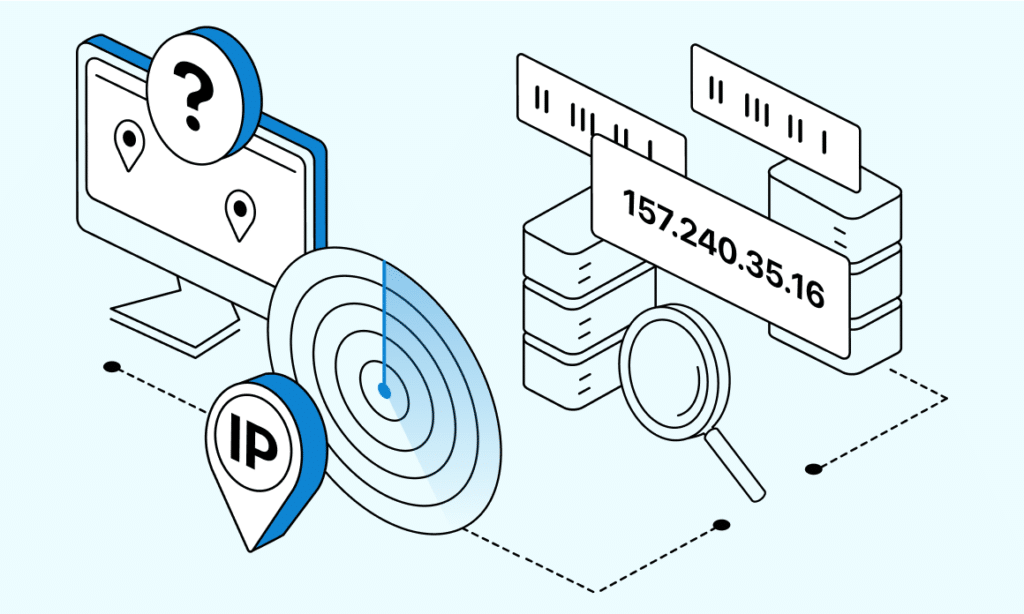
There are many ways to get proxy IP addresses, from the Internet you can get millions of proxy server addresses, these proxy IP addresses are provided by organizations and individuals, their quality is difficult to guarantee, and many proxy IP addresses are invalid or unstable. Therefore, how to get a high-quality proxy IP address, is worth thinking about, which needs to master a certain method.
Method 1: Obtain the free proxy IP address through a search engine
Users can get free proxy through search engines, and search engines to find some free proxy IP address sites, through these sites can get a large number of free proxy server lists, and these lists will have more proxy IP addresses. However, not all proxy IP addresses are available, and when we use them, we will find that most free proxy IP addresses are invalid.
Therefore, users also need to evaluate the proxy IP address in the list to obtain a higher-quality proxy IP address. Although this method has no economic cost, it must pay a large time and energy cost. In addition, the free proxy IP address is not stable, it may be very stable and fast today, but by tomorrow, you may find that the address is no longer available.

Method 2: Build your proxy server to get the proxy IP address
Most people need to use proxy IP addresses when they surf the Internet, so they set proxy IP addresses on browsers such as Firefox and Chrome. However, because the free proxy IP address is volatile, when the IP address is invalid, the user needs to re-set the proxy on the browser. If this process is cumbersome, you can also use simple proxy server software to build your proxy server, so that you can easily set up the proxy while using the browser.
Method 3: Obtain the proxy IP address from the proxy service provider
How to get a long-term stable available proxy IP address, the best way is to buy proxy IP from the proxy service provider. High-quality proxy service providers can provide a variety of proxy IP types for users to choose from, their proxy IP addresses are high quality and can achieve fast and stable connections. Of course, different agent service providers, proxy IP prices, and related services are different, users can choose the right agent IP service providers according to their own needs.

The above tells you how to get proxy IP address, which the proxy IP address obtained from the proxy service provider is the most real and effective. With a proxy IP address, users can easily use the proxy IP to visit different websites or perform other network activities.
IP proxies exist to establish a distance between the server and the user’s personal information, thereby protecting the user’s personal information. As the need for privacy and the threats to it have diversified, so, too, have the proxies to fit those needs. Datacenter proxies are still the most common proxy servers, due to their ready availability and generally low price point. What is a datacenter proxy and what are its advantages?

What is a datacenter proxy?
Datacenter proxies are intermediaries between a client and a server. These proxy servers assign users with IP addresses not affiliated with ISPs (Internet Service Providers) and come from third-party cloud service providers. The datacenter proxy’s servers are provided by the data center and use dedicated hardware and high-speed network connections to maintain stable connections and high-speed access speeds.
Datacenter proxy Advantages
1. High reliability
Datacenter agents provide high reliability. Because data center proxy IP uses high-performance servers and network infrastructure, it provides stable and reliable proxy services. This ensures that users’ network requests are delivered smoothly and reduces connection problems due to agent failures.
2. High-speed access
Another advantage of data center brokers is their high-speed access capabilities. Data centers often have high-bandwidth network connections that can provide faster download and upload speeds. For applications that require frequent access to network resources, fast access speeds can greatly improve user experience and help improve application performance.

3. Provide a large number of IP addresses
Because data center proxy IP addresses can provide a large number of IP addresses, you can provide stable and reliable proxy IP services. The use of data center proxy IP addresses can avoid the problem of blocked access due to IP blocking or frequent IP changes. It is also very suitable for application scenarios that require large-scale concurrent access.
4. High anonymity
Datacenter proxy IP hides a user’s real IP address, making their activities on the network more private and anonymous. This is especially important for users who need to protect personal information and maintain network security, and data center agents can provide users and enterprises with a higher level of anonymity.
Datacenter proxy DIsadvantages
Although datacenter proxy IP has many advantages, there are also some disadvantages. Because the IP addresses used by data center proxies are usually static and dedicated, proxy behavior is easily detected by the target website. Data center agents are usually provided by third parties, and there may be some trust issues. For scenes that require a high degree of anonymity and authenticity, people will be more inclined to residential proxies.

In short, the advantages of data center proxies include high reliability, high-speed access, a large number of IPs, and high anonymity, but there are also easy-to-detect and trust issues. If the user’s priority is concealment and a low blocking rate, residential proxies are undoubtedly the better choice. Conversely, if what users want is efficiency and cost-effectiveness, a data center proxy is more appropriate.